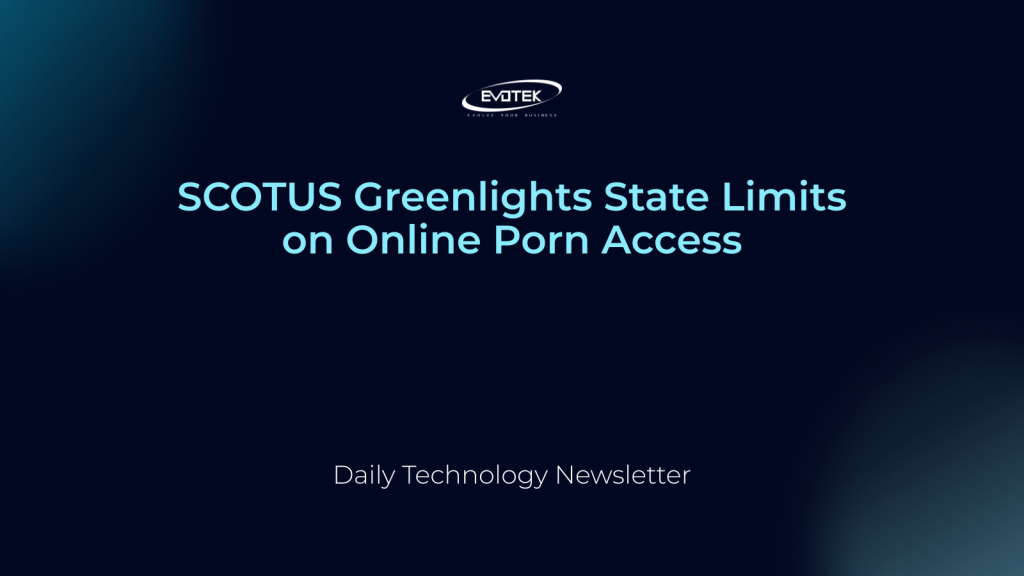In a landmark decision, the Supreme Court has ruled that states can enforce age verification measures to restrict access to online pornography. This ruling marks a significant shift in the interpretation of First Amendment protections in the digital age.
The 6-3 decision stemmed from a challenge to a Texas law requiring individuals to verify their age with a government-issued ID before accessing pornographic websites. Justice Clarence Thomas, writing for the majority, argued that the law serves the state’s interest in protecting minors from harmful content.
This ruling effectively reverses previous Supreme Court stances against broad restrictions on online content, as seen in the Communications Decency Act of 1996 and the Child Online Protection Act of 1998. The Court now distinguishes the Texas law as more narrowly tailored and technologically relevant to today’s digital landscape.
“With the rise of the smartphone and instant streaming, many adolescents can now access vast libraries of video content…at almost any time and place,” Justice Thomas stated, emphasizing the need for updated regulations.
The Texas law, known as HB 1181, imposes hefty fines on websites failing to verify users’ ages and allowing minors access, but notably exempts search engines and social media platforms. Critics argue this creates an uneven playing field.
The Free Speech Coalition, representing various pornographic websites, contended that the law unduly burdens adults by requiring invasive age verification. However, Justice Thomas dismissed these concerns, asserting that there is no First Amendment right to avoid age verification.
Justice Elena Kagan, in her dissent, argued that the law should be subjected to strict scrutiny due to its impact on adults’ access to constitutionally protected speech. Kagan highlighted the potential risks associated with surrendering personal information to website operators, including the possibility of data breaches or misuse.
“It is not, contra the majority, like having to flash ID to enter a club,” Kagan wrote. “It is turning over information about yourself and your viewing habits…to a website operator, and then to … who knows?”
This ruling is poised to have widespread implications, potentially leading other states to adopt similar age verification laws. The decision may also trigger further legal challenges concerning the balance between protecting minors and upholding First Amendment rights online.
Currently, eighteen states have similar laws in effect, with six more having enacted such laws yet to be implemented.
Key Takeaways:
- Supreme Court upholds Texas law requiring age verification for online porn access.
- The decision represents a shift in First Amendment jurisprudence regarding online content.
- Critics raise concerns about privacy and the burden on adults’ access to legal content.
- Expect more states to follow suit with similar legislation.
Related Topics: Supreme Court, Texas, Pornography, First Amendment, Online Privacy

 日本語
日本語 한국어
한국어 Tiếng Việt
Tiếng Việt 简体中文
简体中文